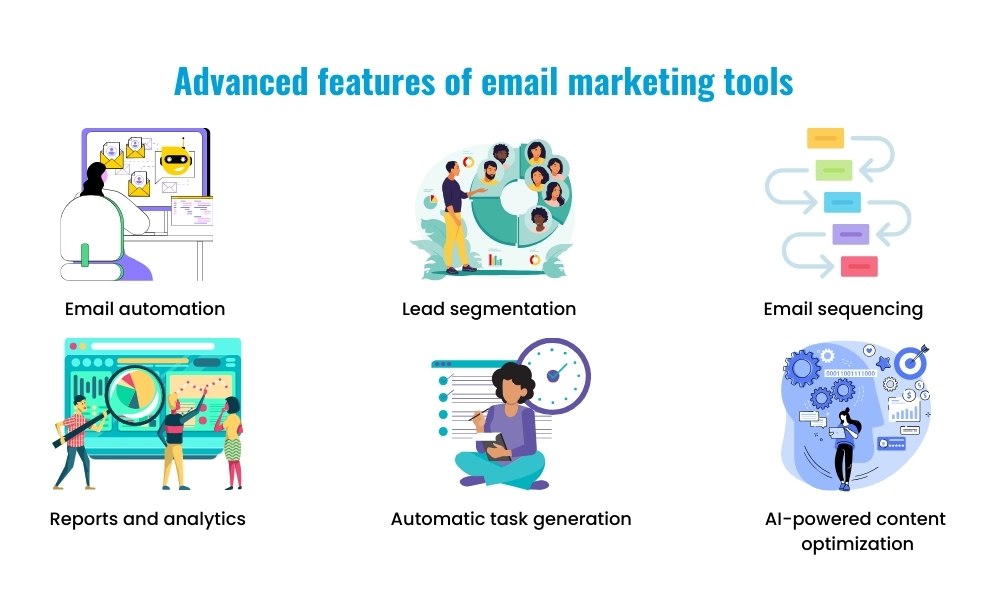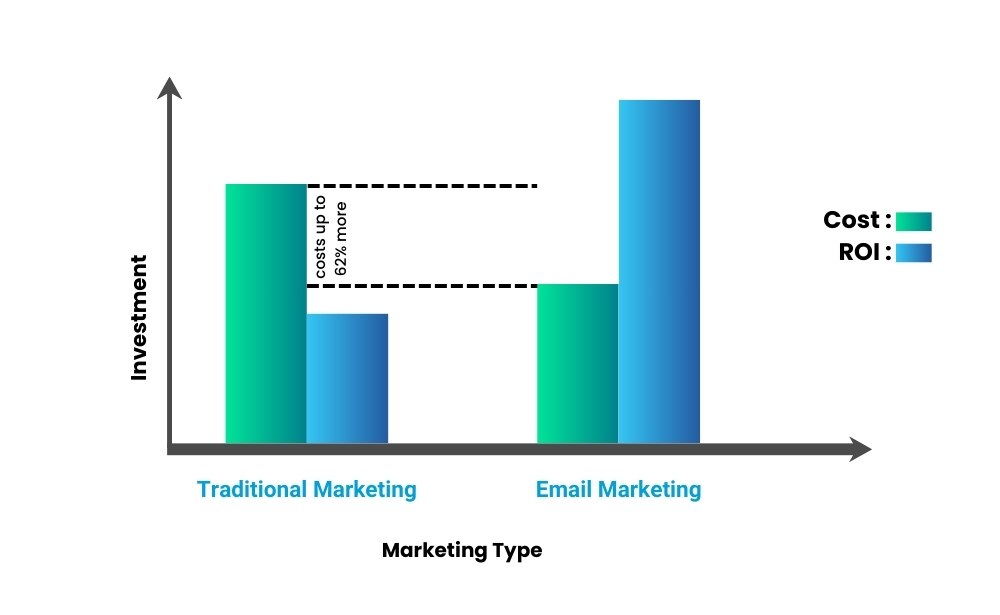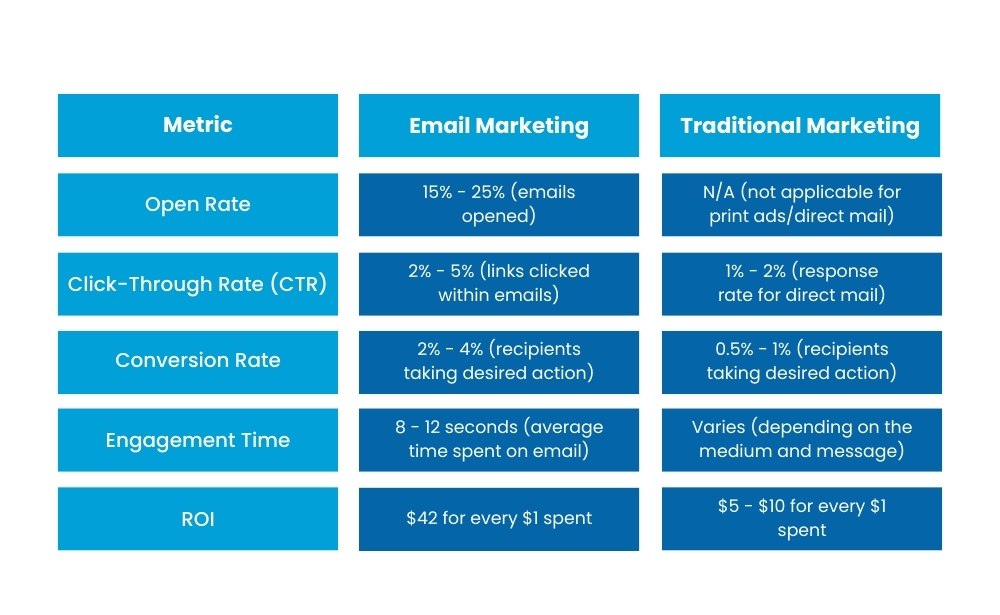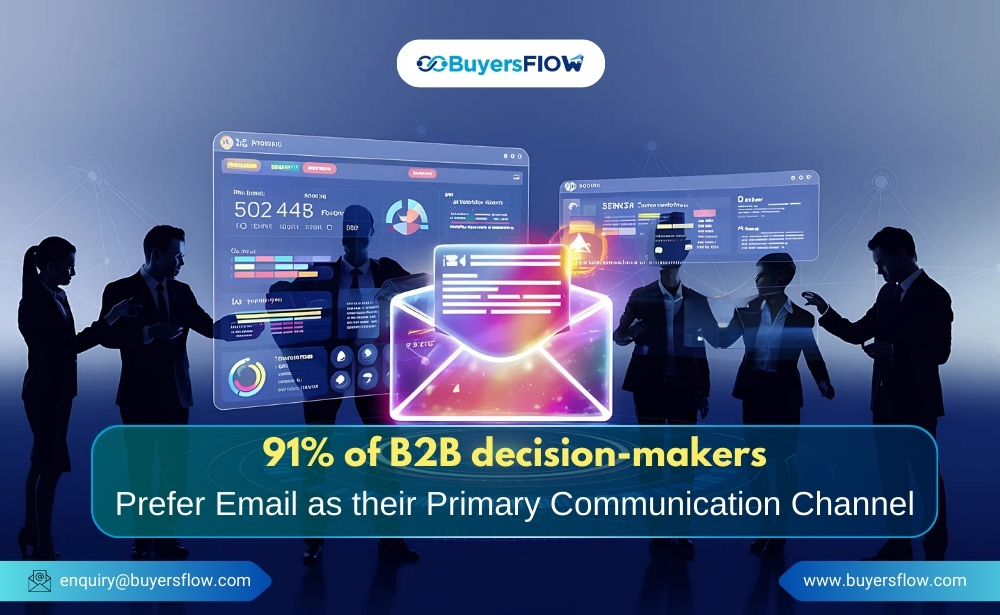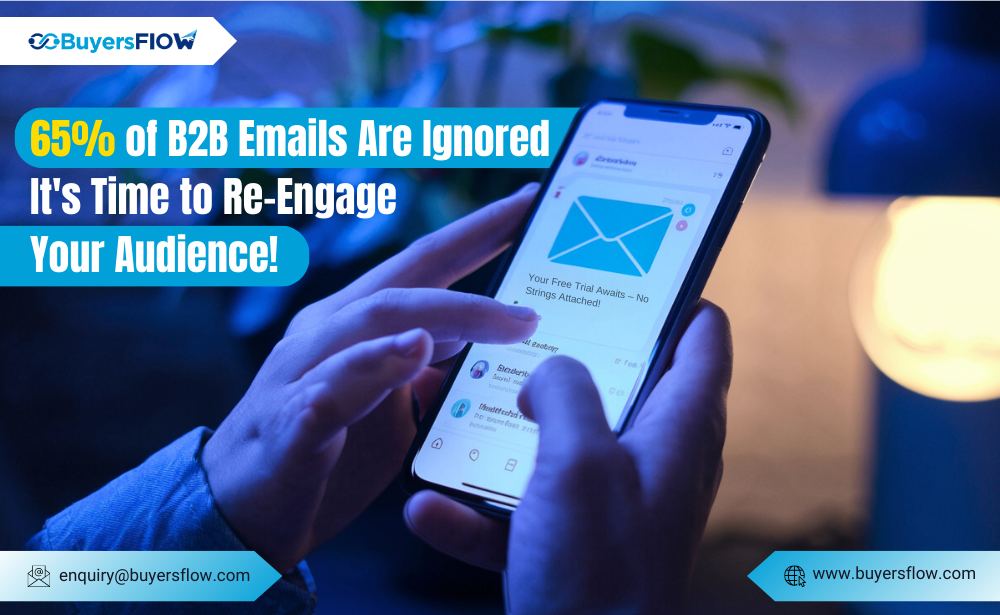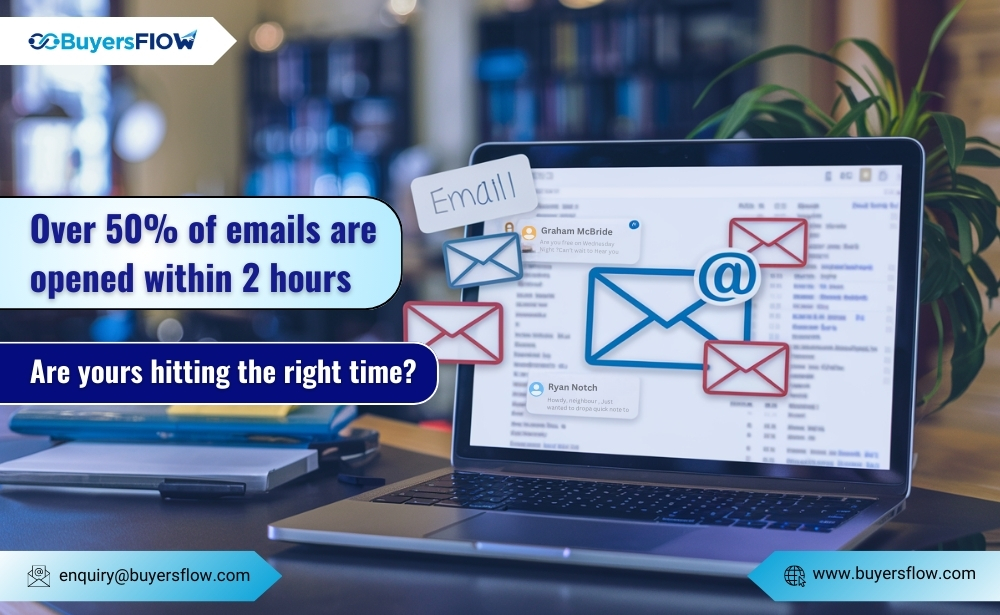Did you know that 62% of traditional marketing efforts often result in wasted resources and lower ROI? Most B2B companies constantly face the challenge of choosing the most effective marketing strategy to reach their target audience. While traditional marketing methods like print ads, direct mail, and trade shows have been staples for decades, their effectiveness is dwindling.
In contrast, email marketing platforms offer precision, cost-efficiency, and higher engagement. This begs the question: How do these two approaches compare with one another? To learn more, let us first examine them individually and their effectiveness in B2B success.
What are Email Marketing Platforms?
Email marketing software or platforms are powerful tools designed to help businesses create, send, and manage email campaigns effortlessly. These platforms come equipped with features like automation, lead segmentation, advanced analytics, and personalization options. For B2B companies, these tools can revolutionize how you engage with your audience, nurture leads, and drive conversions.
Traditional Marketing in B2B
Traditional marketing encompasses a variety of methods, including print ads, direct mail, trade shows, and telemarketing. While these tactics have been effective in the past, they often come with higher costs and less precise targeting. While there is still value in these approaches, the rise of digital marketing is making their shortcomings more and more obvious.
Comparing Email Marketing Platforms and Traditional Marketing
Reach and Targeting
Email marketing platforms allow you to target your audience with pinpoint accuracy. You can segment your leads based on various criteria, ensuring that the right message reaches the right person at the right time. Traditional marketing often involves a broader approach, which can lead to wasted resources and missed opportunities.
Cost-Effectiveness
Email marketing is incredibly cost-effective. Studies show that businesses can save up to 40% of their marketing budget by switching to email marketing tools. Traditional methods like print ads and trade shows require significant investment with less guaranteed return.
Measurability and Analytics
One of the biggest perks of using email marketing software is the ability to measure everything. From open rates to click-through rates, you get real-time data to see what’s working and what’s not.
This lets you modify and improve your campaigns at any time. Traditional marketing, in contrast, provides limited insights, making it harder to track effectiveness and ROI.
Engagement and Personalization
Engagement is the key to success in B2B marketing. Email marketing tools enable you to personalize messages based on recipient behavior and preferences, potentially increasing engagement rates by up to 50%.
Traditional marketing, on the other hand, frequently uses one-size-fits-all messaging that may be ineffective with your target audience.
Conclusion
While traditional marketing has its strengths, email marketing platforms offer unique advantages for B2B companies. With precise targeting, cost-effectiveness, advanced analytics, and personalization capabilities, email marketing can significantly enhance your marketing efforts.
If you are planning your next marketing campaign, consider the benefits of the BuyerFlow email marketing tool. It will help you reach your target audience more effectively and provide the tools you need to measure success and adapt your strategies in real time.
Ready to embrace the power of BuyersFlow? Check out our website right now, and let us help you succeed in your B2B business.

